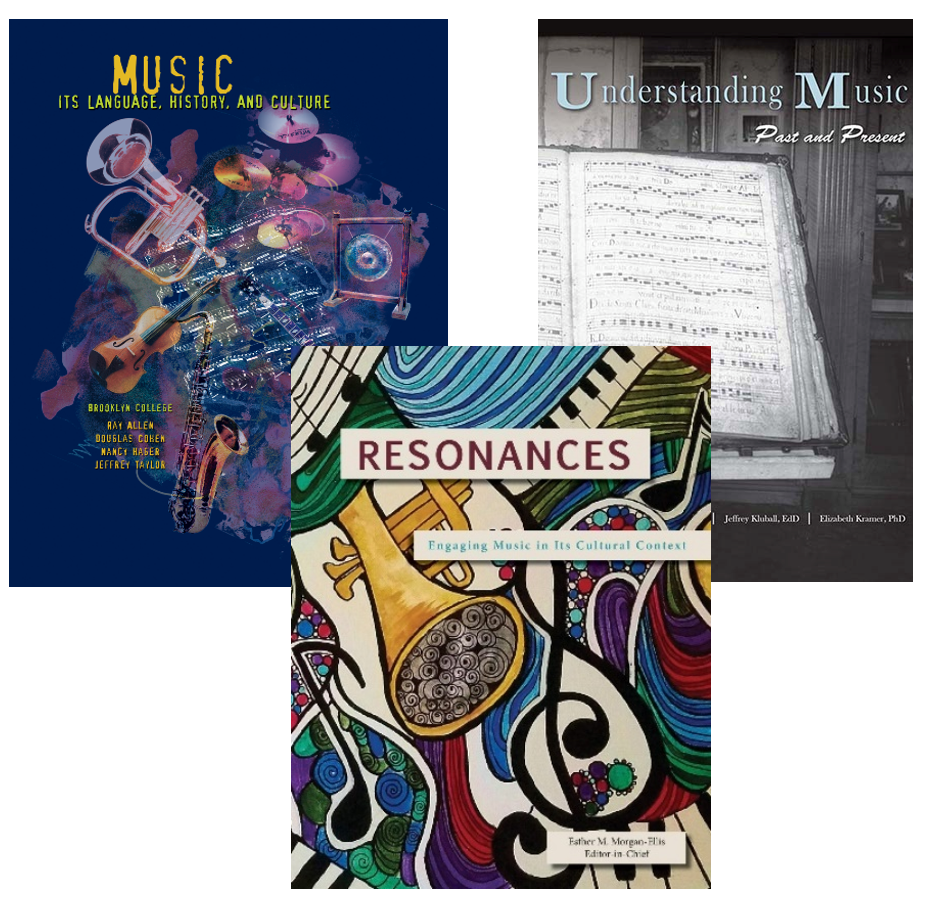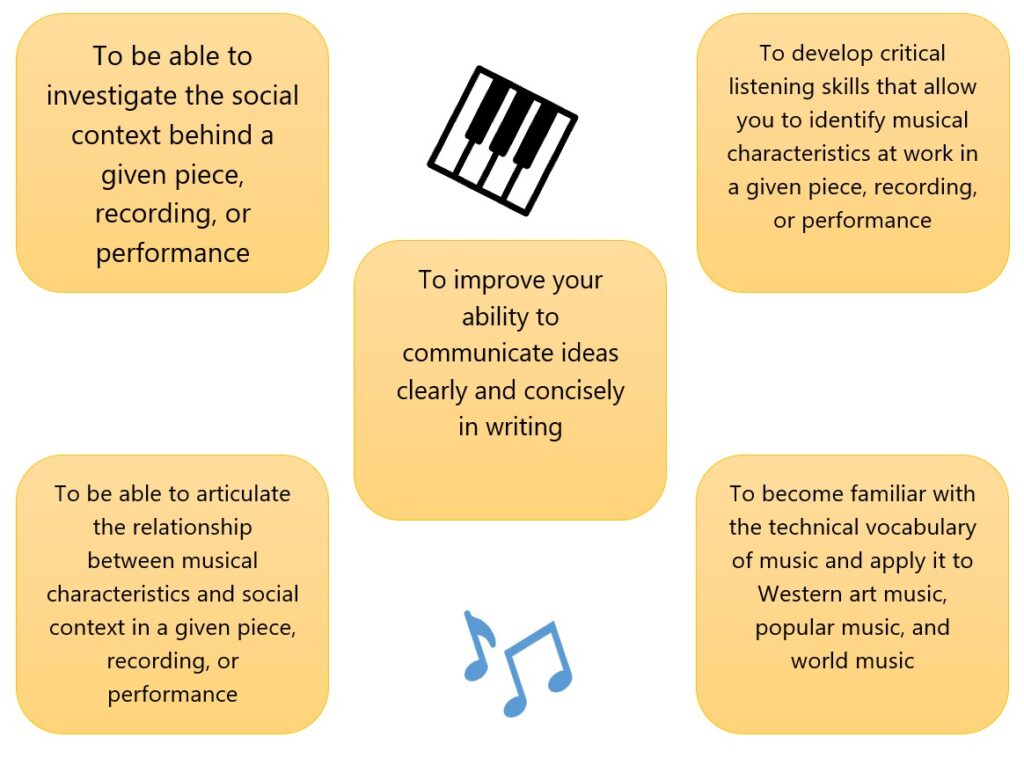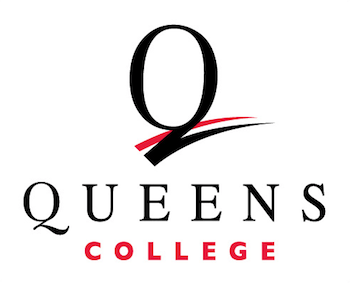Home » Articles posted by Samuel Teeple (Page 2)
Author Archives: Samuel Teeple
Welcome!
Thanks for creating a Commons account and joining our course site. I’m excited to read your thoughts about music in each of your blogs throughout the semester. Please comment below to briefly introduce yourself (name, year, major) and share your favorite musician/song/group/composer that you like, along with a related musical recording from Youtube.
For example, here’s my introduction. Hi everyone! My name is Samuel Teeple and I’ll be teaching this course. I’m working on my PhD in Historical Musicology at the CUNY Graduate Center. One of my favorite composers is Felix Mendelssohn since I study German music in the 1800s–here’s the London Symphony Orchestra playing his piece The Hebrides, a work he composed in 1830 after spending time in Scotland near the sea.
READ: About the Instructor and Office Hours
Hello! I’m Samuel Teeple–you can call me Professor Teeple or Prof T–I go by the pronouns he/him, and I’ll be heading this section of MUSIC 1. In addition to teaching at Queens College, I’m also working toward my PhD in Historical Musicology at the CUNY Graduate Center. Musicologists focus on the academic study of music rather than composing, performing, or other hands-on musical activities (though many of us still engage in those activities as well). Most of our research methods are focused on interpreting printed sources, analyzing music, and applying different theoretical approaches to music like economics, feminism, or technology studies. Musicologists are also responsible for teaching courses like music history and introduction to music. Besides teaching this course, I’m also researching the contribution of Jewish Berlin to German music in the early nineteenth century.
You can contact me at steeple@gradcenter.cuny.edu. I try to respond to all emails within 48 hours. If you don’t get a response by then, please send me a reminder and I’ll get back to you as soon as possible.
I host office hours via Zoom by appointment and Mondays and Wednesdays 4pm – 5:30pm. Office hours give you the chance to ask questions about the course material, specific assignments, how to do research, how to improve your writing, etc. To set up an appointment, send me an email with your availability and the topic(s) you’d like to discuss. Once I confirm our meeting time, you can begin our scheduled appointment by opening the Zoom invitation included below.
Here’s to a great semester!
——-
Topic: Exploring Music Office Hours Fall 2022
Time: Meet anytime
Join Zoom Meeting
https://gc-cuny-edu.zoom.us/j/89774124230
READ: Syllabus
Download the syllabus as a PDF or read on below
MUSIC 1: Exploring Music | Queens College | Fall 2022, 3 credits
| Instructor | Samuel Teeple (steeple@gradcenter.cuny.edu) |
| Office Hours | Hosted via Zoom Mon. & Wed. 4pm – 5:30pm or by appointment Zoom link available here |
| Class Meetings | Mon. & Wed., 10:45am – 12:00pm MUSIC 263 |

Course Summary
Exploring Music (aka Introduction to Music) examines how music communicates and embodies social and personal ideas, beliefs, and values relevant to both music makers and users. Musical elements and listening skills are introduced and developed throughout the course in order to explicate musical meanings. We will learn about different genres of music, including popular music, folk music, and Western art music (also known as classical music), by examining not only their sounds, but their social historical contexts. No previous musical expertise is required to succeed in this class. At the end of this semester, students will be able to recognize specific musical characteristics across a variety of styles and become familiar with how factors like class, politics, and culture can shape musical sounds. As a class, we will reflect on the communicative powers of music, connecting the sounds we hear with the living world that surrounds them.
For this course, you’ll need…

Blackboard is an online teaching platform. You will submit all assignments and quizlets via Blackboard, and announcements will be posted there; blogs will be posted to the Commons course site.
How to access Blackboard:
1. Visit http://bbhosted.cuny.edu
2. Login with your CUNY login credentials: Firstname.Lastname##@login.cuny.edu
3. Under the My Courses tab on the left side of the screen, click on the title of our course: Exploring Music (MUSIC 1-FYE2 35002) Fall 2022.

Syllabus, readings, course schedule, assignments, blog posts, and more are available through our course site, hosted on the CUNY Academic Commons. To learn more about using the Commons, visit our How-to Guide.

Required Textbooks
Resonances: Engaging Music in Its Cultural Context
Understanding Music: Past and Present
Music: its Language, History, and Culture
These textbooks are all Open Educational Resources (OER); you can download them for free on our course site, along with any other assigned readings.
Student Resources at Queens College
Looking for support as a first year student? First Year Experience (FYE) is a student success program designed to support first-year freshmen and transfer students in their undergraduate careers. Through FYE, students have access to support in study skills, time management and academic planning through peer mentorship, hands-on workshops, and online video tutorials. Students interested in taking advantage of these opportunities can visit FYE virtually at fye.qc.cuny.edu or in-person Monday – Friday from 9:00 am – 5:00 pm in Honors Hall room 5. Email any questions to fye@qc.cuny.edu.
Looking for a laptop to complete your online work? Request to borrow an online device from QC here : https://www.provost.qc.cuny.edu/students/devices This is just one entry from the Provost’s Office long list of student resources, including food assistance and emergency funds: https://www.provost.qc.cuny.edu/students
Looking for someone to talk to? Many students are dealing with feelings of depression, anxiety, and stress. The QC Counseling Center takes appointments by phone (+1 718-997-5420), and provides referrals to low-cost, sliding scale, and pro bono mental health practitioners. Contact them via email (CounselingCenter@qc.cuny.edu) or by phone: (718) 997-5420.
Looking for help with writing? Writing assignments make up a large proportion of your grade in this course. For one-on-one help with topics like sentence structure, grammar, and spelling, please make a free appointment online with the campus writing center: http://writingcenter.qwriting.qc.cuny.edu/
Accessibility Statement
Students with disabilities or other conditions requiring academic accommodation should: (1) register with and provide documentation to the Special Services Office (http://qcpages.qc.cuny.edu/spsv/index.htm) (2) bring a letter to the instructor during the first week of classes indicating the need for accommodation, and of what type. For more information, contact Dr. Mirian Detres-Hickey, Special Services Office: qc.spsv@qc.cuny.edu.
Your success in this class is important to me. If there are circumstances that may affect your performance in this class, please let me know as soon as possible so that we can work together to adapt assignments that meet both your needs and the requirements of the course.
Learning Goals and Objectives

Grading and Assignments

Blogs
- 10 blogs this semester at 10 points each
- Blog prompts posted Mondays on the Commons
- To earn 10 points:
- Write around 200 words
- Support claims with evidence from music, textbook, or outside source
- Post your blog by Sunday at 11:59pm
- To receive an extra credit point, leave a thoughtful reply on a classmate’s post by the following Monday at 11:59pm
- Replies should be two to three sentences long and engage with the author’s ideas by adding your own input; more than just “I agree” or “I like that song too”
Quizlets
- 11 quizlets this semester at 10 points each; lowest score is dropped at the end of the semester
- 5 to 10 questions based on the week’s reading, listening, and course content
- Posted Mondays on Blackboard
- Due Sunday at 11:59pm
Small Assignments
- Miscellaneous category worth 50 points spread across four assignments
- Joining the Commons: Sunday September 4
- Make a profile, join the course site, and comment on the Welcome post
- Student Survey: Sunday September 4
- Fill out the student survey
- Musical Elements Assignment: Sunday, September 18
- Notes-based worksheet dedicated to the musical elements; 20 pts.
- Test Builder Assignment: Sunday, November 20
- Create a short test based on one of the textbook chapters; 20 pts.
- Joining the Commons: Sunday September 4
Music and… Playlist Project
- An annotated playlist of six songs or pieces of music aligned with a social topic of your choosing (like Music and Feminism, Music and Agriculture, Music and Revolution, etc.)
- Not eligible: emotions or moods; topics used in textbook chapter titles
- Playlist choices should include a diversity of artists and genres: at least one example each of folk music, Western art music, and popular music
- You can choose one of your playlist entries from our textbooks
- Written entry of about 200 words for each song/piece that discusses its:
- Musical characteristics
- Social, cultural, or historical background
- Connection to the topic
- Due in building block stages throughout the semester; continue improving each playlist entry based on my feedback (even the first ones!)
- Replaces the midterm and final exams
Music and… Playlist Stages
- Topic Proposal and First Playlist Entry: Sunday October 2
- Topic summary, first playlist entry, bibliography; 20 pts.
- Small Group Peer Review: Sunday October 16
- Using Blackboard groups, read and review several of your classmates’ topic proposals; 20 pts.
- Music and… Playlist Part 1: Sunday October 30
- Topic summary and first playlist entry with necessary revisions, two more playlist entries, bibliography; 60 pts.
- Presentation: Sunday December 11
- In-class presentation with slides that summarize your playlist; 20 pts.
- Music and… Playlist Part 1 + Part 2: Sunday December 18
- Topic summary, six playlist entries with necessary revisions, bibliography; 60 pts.
Extra Credit: Participation Points
- You can earn up to 20 points of extra credit by completing small participation activities assigned regularly in class meetings. Participation points are calculated at the end of the semester and based on the percentage of participation activities you’ve turned in.
- If you are unable to attend class for an extended period but are still interested in earning participation points, you can reach out to me for an alternative assignment before the end of the semester.
Course Policies
Attendance at class meetings is not required but it is highly recommended. At these meetings, we will not only discuss the content covered in the textbook and/or video lectures, but also break down large assignments, review course concepts, address questions, and exchange feedback about what’s working and what isn’t working in the course. I know it can be difficult to get back into the groove of attending class but stopping by each week is essential to learning new concepts and staying on top of due dates. You can also get to know your classmates and instructor on a face-to-face level and earn extra credit! If you cannot attend class for an extended period of time due to illness or another personal issue, please let me know as soon as possible.
Late Work: Each student will be given two “late passes” to use for any assignment, no questions asked! By using a late pass, you will earn an extra 48 hours past the original due date to turn in your work. To use a late pass, fill out the Google Form linked on Blackboard.
If for whatever reason you find yourself regularly unable to complete your weekly work on time, contact me directly. You do not need to share personal or medical information with me to justify an extension or accommodation.
Holidays: If a religious holiday falls on a scheduled due date or makes it difficult for you to complete your work on time, please let me know and I will accommodate your needs.
Academic Honesty: Academic dishonesty is prohibited in the City University of New York. Penalties for academic dishonesty include academic sanctions, such as failing or otherwise reduced grades, and/or disciplinary sanctions, including suspension and/or expulsion.
Examples of academic dishonesty include but are not limited to cheating, plagiarism (passing someone else’s work off as your own), obtaining unfair advantage, and/or falsification of records and official documents. If you share an assignment with a classmate and they copy your work, with or without your permission, both of you can be penalized. If you copy text directly from a website or textbook, paste it in your assignment, and don’t give credit, you will fail the assignment. Simply put, academic dishonesty will not be tolerated in this class. If you are unsure whether an action you wish to take is academically dishonest (e.g., working on a homework assignment with a friend),ask me first.
READ: Course Structure
About This Course
MUSIC 1, or Exploring Music, is taught in person on Mondays and Wednesdays. Course content and blogs, however, are posted on this Commons site, while Blackboard is used for sending out course announcements and submitting assignments.
Blackboard Layout
To acquaint yourself with how to use Blackboard, you can view this video tutorial or visit the How to Use Blackboard tab on our Blackboard course. All of my email communication with the class can be viewed on Blackboard under the Announcements tab. At the beginning of each week, I will update the Weekly Folders tab with instructions, reading, listening, and assignments for that week. All assignments with descriptions can be viewed and submitted on Blackboard via the Assignments tab; likewise, all quizlets will be available via the Quizlets tab. You can access your grades on Blackboard under the My Grades tab.
Commons Layout
To use one of your late passes (see syllabus for details), you need to fill out the Late Pass Form, linked under the Late Pass tab on the Commons site. The syllabus, schedule, and other important information for the course are under the Start Here (Course Info) tab, which is where you are right now.
A complete list of all assignments and reading for the semester are available under the Schedule tab. You can download your OER textbooks under the Readings tab. You can find Youtube and Spotify links for each unit’s music under the Listening tab. Blog prompts and blog posts can be viewed under the Blogs tab. The Music and… Playlist tab includes information on each stage of the assignment.
Weekly Structure
This class is organized by usually week-long units that begin on Mondays and end on Sundays). Links and instructions for each week’s assignments, reading, and listening will be posted every Monday morning on Blackboard under the “Weekly Folders” tab. I will also post important class information via Blackboard announcements, so make sure that you connect your preferred email address to Blackboard and check that email address regularly (but especially Mondays!).
Each week is generally structured as seen below; most weeks feature a quizlet and a blog, and some weeks include deadlines for the Music and… Playlist or other small assignments (see syllabus for a full breakdown).
Blogs are due on Sundays at 11:59pm via the Commons site. All other assignments are due via Blackboard on Sundays at 11:59pm.
| Monday | Tuesday | Wednesday | Thursday | Friday | Saturday | Sunday |
| Class meeting: 10:45am – 12:00pm
Weekly Folder updated with reading, listening, assignments (Blackboard) |
Class meeting: 10:45am – 12:00pm
|
Blog posts due at 11:59pm (Commons)
Quizlet due at 11:59pm (Blackboard)
Most other assignments due at 11:59pm (Blackboard) |
Instructions
- Make a profile on the Commons and upload a profile picture of yourself
- Join our course site group
- Making sure you’re logged in, leave a comment on the “Welcome” post under the Blogs tab
- Come back here to read the materials shared below
- Fill out the Student Survey.
Welcome!
Thanks for creating a Commons account and joining our course site. I’m excited to read your thoughts about music in each of your blogs throughout the semester. Please comment below to briefly introduce yourself (name, year, major, and a musician/song/group/composer that you like). Feel free to share a music recording from Youtube.
For example, here’s my introduction. Hi everyone! My name is Samuel Teeple and I’ll be teaching this course. I’m a PhD student at the Graduate Center and I’m studying musicology. One of my favorite composers is Felix Mendelssohn since I research German music in the 1800s–here’s the London Symphony Orchestra playing his piece The Hebrides, a work he composed in 1830 after spending time in Scotland near the sea.
Posting Guidelines
Blog titles should include your last name and the blog number, like “Teeple Blog 1”.
In your blog posts, I expect two to three paragraphs (around 200 words) in which your ideas are supported by musical or textual evidence. This means that along with giving your thoughts or opinions, you need to provide specific reasons why you have given that answer. Points are given based on your use of evidence and the length of your posts. Copying any text from another person or source–whether a textbook, Wikipedia entry, or online article–without using quotation marks and/or crediting the source is plagiarism and may result in a zero on the blog.
Blog prompts are posted on Monday mornings and due by 11:59pm the following Sunday. Each week’s submissions will remain private until after the due date. You can earn one extra credit point with each blog if you comment on a classmate’s blog on the Monday after the due date.
These comments should be two to three sentences long and be more than a simple “that’s cool,” “I agree,” or “You’re wrong.” It’s fine to disagree or support their point, but provide specific reasons why. Or, if you think of something interesting that relates to or builds on their point, feel free to share that as well.
If you aren’t sure how to make a post or leave a comment, consult the How-to Guide.
Happy posting!



